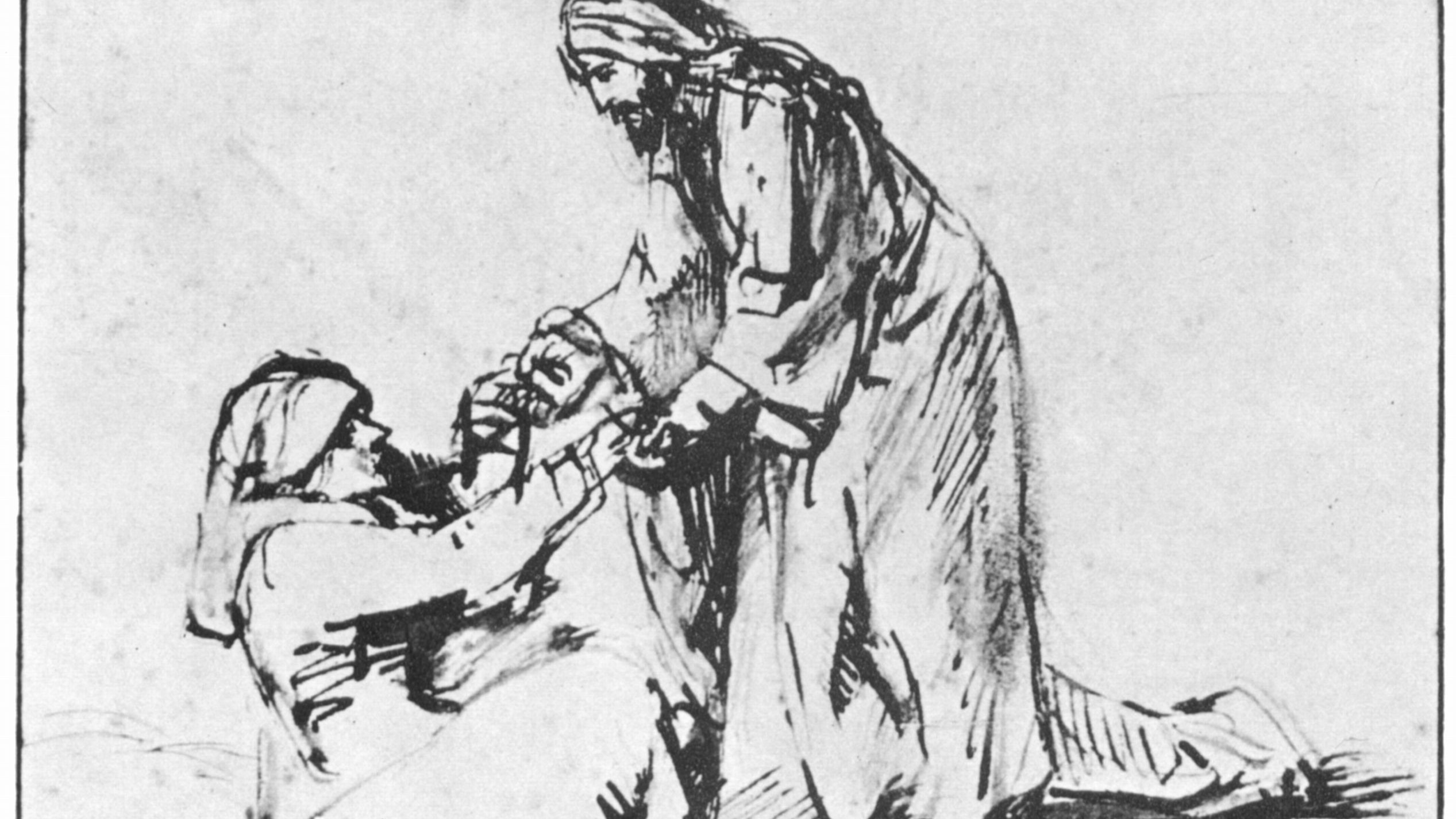
Mark 1:29-31
A Women’s Lectionary 9
29 As soon asA they left the synagogue,B they entered the houseC of SimonD and Andrew,E with JamesF and John.G
A “as soon as” = eutheos. From euthus (immediately, upright, straight and not crooked). This is directly, soon, at once.
B “synagogue” = sunagoge. From sun (with, together with, closely associated) + ago (to lead, bring, carry, guide, go, drive). Literally, this is a bringing together, a place of assembly. The term can be used for the people or for the place where they assemble. It is also sometimes used of Christian churches in the New Testament. So, this is synagogue, assembly, congregation, or church. This is where the word “synagogue” comes from.
C “house” = oikia. From oikos (house – the building, the household, the family, descendants; the temple). This is a house, household, goods, property, family, or means.
D “Simon” = Simon. From Hebrew Shimon (Simon – Jacob’s son and his tribe); from shama (to hear, often implying attention and obedience). This is Simon, meaning “he who hears.”
E “Andrew” = Andreas. 13x in NT. From aner (man, male, sir, husband). This is Andrew, meaning manly.
F “James” = Iakobos. From Hebrew Yaaqov (Jacob); from the same as aqeb (heel, hind part, hoof, rear guard of an army, one who lies in wait, usurper). This is James, meaning heel grabber or usurper.
G “John” = Ioannes. From Hebrew yochanan (Johanan); from Yehochanan (“the Lord has been gracious”); {from YHVH (proper name of the God of Israel); {from havah (to become); from hayah (to be, exist, happen)} + chanan (beseech, show favor, be gracious; properly, to bend in kindness to someone with less status). This is John.
30 Now Simon’s mother-in-lawH was in bedI with a fever,J and they told him about her at once.K
H “mother-in-law” = penthera. 6x in NT. From pentheros (specifically a wife’s father). This is the wife’s mother.
I “in bed” = katakeimai. 12x in NT. From kata (down, against, throughout, among) + keimai (to lie, recline, be placed, lie outstretched, be appointed). This is to lie down, whether for a meal or as one sick in bed.
J “fever” = puresso. 2x in NT. From pur (fire, lightning, heat from the sun; figuratively, strife or trials). This is being on fire or sick with a fever.
K “at once” = eutheos. Same as “as soon as” in v29. See note A above.
31 He cameL and tookM her by the handN and lifted her up.O
L “came” = proserchomai. From pros (for, at, towards) + erchomai (to come, go). This is to approach, draw near, come up to. It is also used figuratively to mean worship.
M “took” = krateo. From kratos (strength, power, dominion; vigor in a literal or figurative sense; power that is exercised). This is being strong or mighty so, by extension, to prevail or rule. It can also mean to seize, grasp hold of and thereby control. In this sense, it means arrest.
N “hand” = cheir. This is the hand in a literal sense. Figuratively, the hand is the means a person uses to accomplish things so it can also mean power, means, or instrument.
O “lifted…up” = egeiro. This is to awake, raise up or lift up. It can be to get up from sitting or lying down, to get up from sleeping, to rise from a disease or from death. Figuratively, it can be rising from inactivity or from ruins.
Then the feverP leftQ her, and she began to serveR them.
P “forever” = puretos. Related to “fever” in v30. 6x in NT. From pur (see note J above). This is inflamed or fever.
Q “left” = aphiemi. From apo (from, away from) + hiemi (to send). This is send away, release, permit, forgive, allow to depart, discharge, or send forth.
R “began to serve” = diakoneo. From diakonos (servant, minister, waiter, or attendant; a person who performs a service, including religious service); {perhaps from dia (through, across to the other side, thoroughly) + konis (dust) OR from dioko (to chase after, put to flight; by implication, to persecute or to purse like a hunter after its prey; this can be earnestly pursue or zealously persecute); {related to dio (put to flight)}}. This is to wait at table, to serve generally, to minister or administer, to be in the office of deacon. To wait on someone as a slave, friend, or host.
Image credit: “Christ Healing Peter’s Mother-in-law” by Rembrandt, circa 1650-1660.
